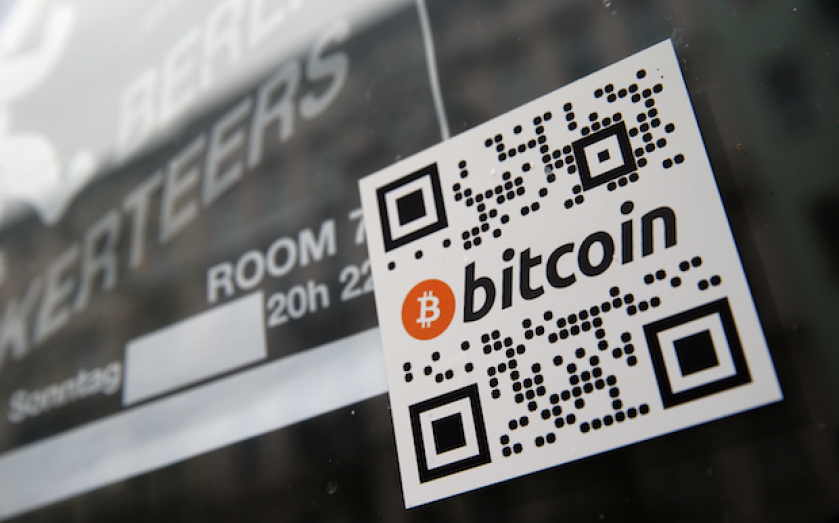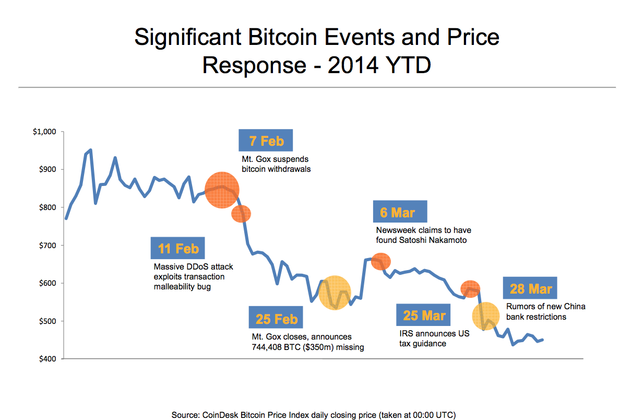Here’s why 2014 could still prove a great year for Bitcoin bugs

The past few months have proved to be a tough time for cryptocurrency Bitcoin.
The MtGox exchange suffered a dramatic fall from grace, while the price of the digital currency has fallen by 37 per cent the year to date.
However, things may be looking up for Bitcoin as venture capital money continues pour in and a fast growing number of retailers are accepting it as payment.
Digital currency news site CoinDesk has published an update to its State of Bitcoin report, primarily focusing on the first quarter of 2014 through to the present day. The findings should provide some comfort to Bitcoin fans but may unnerve some its more radical advocates.
Too much hype
In the wake of a series of exchange closures and cyber thefts, the report acknowledges that expectations around Bitcoin may have risen too far too fast. But this has not had the devastating effect Bitcoin's detractors may have expected. "Bitcoin is a long game, going to take four or five years," said Jeremy Liew of Lightspeed Venture Partners.
The announcement of new Internal Revenue Service (IRS) tax guidance and rumours of further clampdowns in China had a substantial impact on the price of Bitcoin back in March. However, despite recent difficulties, Bitcoin has continued to grow and now represents 90 per cent of total cryptocurrency market cap, up from 76 per cent just two months ago.
Big banks deliver their verdict on Bitcoin
Bitcoin has been receiving increasing amounts of attention, not always complementary, from some of the world's leading financial institutions. Goldman Sachs, UBS, JP Morgan and Bank of America Merill Lynch (BoAML) have all released research on the cryptocurrency.
While BoAML have said Bitcoin could become a significant force in the online market place and could gain a reputation as a store of value similar to that of silver, Goldman Sachs took a very different view.
Goldman blasted Bitcoin for its volatility, which it believes undermines the case that Bitcoin could short-circuit exchange rates in countries with high inflation.
The rapid growth of Bitcoin has also caused something of split within the Bitcoin community. Some wish for it to go more mainstream, immersing itself and complementing the current financial system.
"Bitcoin needs banks to grow. I am more interested in seeing banks adopt bitcoin than I am worried about regulators," said Meyer Malka of Ribbit Capital. However, many of Bitcoin's original libertarian advocates believe it still has the potential to challenge and revolutionise the status quo in finance.
Consolidation
There are increasing signs of industry consolidation. Exchange trading volumes have been concentrating in the largest exchanges, while there has been the gradual rise of a "universal" Bitcoin business model.
This model, according to CoinDesk, involves any Bitcoin company that is "aiming to house multiple components of the Bitcoin value chain under one corporate roof." The report points to examples such as Coinbase and Circle.
Venture capital still bullish on Bitcoin
Whatever the feelings of major banks, venture capital is certainly becoming more bullish on Bitcoin. The current run rate for Bitcoin is $200m, double the total investment seen in 2013.
There continues to be significant variation between regions in terms of investment. North America continues to dominate, with 73 per cent of all Bitcoin venture capital investment.
Asia comes in second with 16 per cent, while Europe lags behind at a poor third with just 10 per cent. Silicon valley continues to have a strong presence, with 38 per cent of all venture capital backed Bitcoin companies residing in California's tech heartland.
Bitcoin winning the hearts of retailers
While still a minority pursuit in the world of commerce, the number of businesses accepting Bitcoin has grown to approximately 60,000, according to CoinDesk. Food establishments remain the most willing businesses to accept Bitcoin payments, but major brands such as Overstock and Zynga have also embraced the digital currency.
Regulation and taxation
One of the biggest threats to Bitcoin has not been the transaction malleability bug or amateurish exchanges, but how the world's government's will react to a decentralised competitor currency.
Thankfully for Bitcoin bugs just 12 per cent of the 73 countries which have taken regulatory action toward Bitcoin are regarded as "hostile" or "contentious," in the eyes of CoinDesk.
The report argues that Bitcoin is at three-way intersection of technology, policy and finance. Tax treatment remains a complicated and fluid picture. The US approach to Bitcoin is classified as "cumbersome," while the UK is seen as "moderate," with countries such as Israel put into the "wait and see category."
